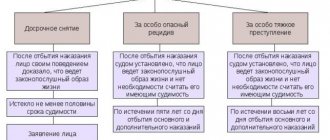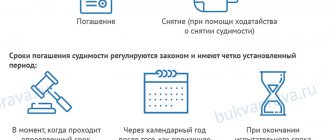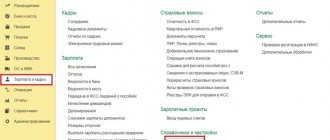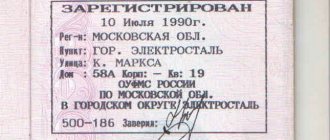Free legal consultation over the Internet 24 hoursLawyer on housing issues in St. Petersburg. Free legal consultation on labor disputes.
5/5 (2)
Concept of criminal record and consequences
Article 86 of the Criminal Code of the Russian Federation and Article 400 of the Criminal Procedure Code of the Russian Federation are devoted to the issue of criminal records. A criminal record is a condition associated with receiving punishment for criminal acts that entailed restriction or imprisonment for a period provided for by current legislation.
As stated in Art. 86 of the Criminal Code of the Russian Federation, a citizen is considered convicted from the moment the court verdict comes into force. A criminal record is valid until the end of the period established by the court, or until the occurrence of other circumstances conducive to its removal.
The fact of a previous criminal record is important when legal and civil restrictions are established for the former convict.
Please note! If it is established that a citizen has a criminal record, then he does not have the right:
- Hold certain positions (work in public services);
- Engage in teaching and educating minors;
- Provide lawyer services and provide legal advice;
- Hold key positions in aviation and finance;
- Work in the field in which his criminal record is related (transportation of passengers, accounting, provision of medical services, etc.).
In addition, other restrictions may apply to a convicted citizen:
- Ban on military service;
- Nominating oneself for elections to government bodies at all levels;
- Obtaining a license to store and purchase various types of weapons;
- Adoption of children;
- Obtaining citizenship of a number of countries (including the Russian Federation).
We have given only the main, most common restrictions associated with having a criminal record. A complete list of restrictive measures against former defendants is available in the current version of the Criminal Code of the Russian Federation.
In addition to restrictions associated with professional activity, having a criminal record entails undesirable consequences when considering cases against a convicted person in court.
Attention! Current legislation provides for the following measures:
- Former convicts receive more severe penalties than first-time convicts;
- The court orders the term to be served in a high-security correctional facility;
- Those previously convicted are not covered by the amnesty.
In addition, in cases where a previously convicted person is released from prison, the authorized bodies exercise control over the activities of the convicted person in order to avoid re-committing a crime.
The presence of the fact of criminal prosecution in the past may lead to the restriction of a citizen in a number of rights and freedoms, therefore the issue of expungement and expungement of a criminal record does not lose relevance.
What is the Right to be Forgotten
This right gives any person who has been subject to the collection, storage and processing of data, or who has voluntarily and independently published personal information, the opportunity to demand the termination of the release of data that he considers to be inaccurate, irrelevant, irrelevant or no longer relevant. Although the term “right to be forgotten” is a recent invention, the prerequisites and similar mechanisms existed earlier. Proof of this is Art. 17 of the International Covenant on Civil and Political Rights.
The legislative framework
Article 17 of the International Covenant on Civil and Political Rights (ICCPR) establishes the right to protection of private and family life from arbitrary or unlawful interference. A similar right is regulated in Art. 12 Universal Declaration of Human Rights, art. 8 of the Convention for the Protection of Human Rights and Fundamental Freedoms, Art. 7 of the European Union Charter of Fundamental Rights. The constitutions of countries around the world have included the right to private and family life in the list of fundamental human rights.
How to check your criminal record
Let's understand the concepts. The expungement of a criminal record refers to a number of measures that are carried out by authorized bodies in the presence of certain circumstances.
Expungement of a criminal record is the automatic removal of restrictions upon expiration of the period prescribed by law.
Determining whether others have faced criminal charges is not easy. Calculating the expiration date of a criminal record according to the sentence does not provide a guarantee, since there may be additional punishment.
The convicted person also has the right to request early expungement of his criminal record through the court. In this case, the criminal record will be annulled before the actual term of serving the sentence.
Attention! Information about persons prosecuted for crimes of varying severity is in the database of the Main Information and Analytical Agency of the Ministry of Internal Affairs. Such information can only be obtained upon request.
Information posted on the Internet may be erroneous. In general, there are several ways to obtain information about bringing a citizen to criminal liability:
Official website of the court
On the page of the court located at the citizen’s place of registration, you can obtain the information of interest. By going to the “Judicial Proceedings” section using the citizen’s last name, you can determine which cases were considered in relation to this person. However, it is not uncommon for a citizen to be convicted in another region. Consequently, this method does not allow one to accurately determine the fact of prosecution.
Bailiffs website
A well-known resource that allows you to establish the presence of a criminal record is the website of the Bailiff Service. After entering the citizen’s data (full name, date of birth), it is possible to obtain information about the presence of open enforcement proceedings, as well as establish their reasons (unpaid fines, arrears of alimony, compensation for harm to health, etc.).
Attention! Our qualified lawyers will assist you free of charge and around the clock on any issues. Find out more here.
Website of the Ministry of Internal Affairs of the Russian Federation
The department's website provides access to information about citizens who are wanted. To search, you must enter your last name, first name and date of birth.
It is worth noting that these methods are not absolutely reliable. The only way to obtain up-to-date information about bringing a person to criminal liability is to request a certificate of the presence/absence of a criminal record.
In addition, there are a number of conditions for expunging a criminal record - the convicted person has served his sentence and has not been brought to administrative responsibility after punishment.
As stated in the Administrative Regulations of the Ministry of Internal Affairs, every citizen has the right to receive information about criminal prosecution. If such a need arises, the citizen contacts the Information Center of the Ministry of Internal Affairs of the Russian Federation.
Please note! When receiving information, the following algorithm is used:
- The citizen sends a request to the GIAC of the Russian Federation;
- Draws up an application according to the sample;
- At the end of the established period, he receives a corresponding certificate.
Thanks to the presence of a single database, a citizen has the right to contact the Center both at his place of permanent registration and at his place of residence.
When is a criminal record expunged in Russia?
The Criminal Code of the Russian Federation contains information about after what period a criminal record is considered expunged.
Please note! This regulatory act contains terms for expunging a criminal record depending on the severity of the crime:
- 12 months – for citizens given a suspended sentence or partially restricted in liberty;
- 3 years – for persons sentenced to a term of no more than 3 years;
- 8 years – for citizens who have served a sentence for committing serious crimes for up to 10 years;
- 10 years – for persons whose term of service exceeds 10 years (for the commission of serious crimes);
- Probation period – in the presence of a suspended sentence.
The period of expungement of a criminal record begins after the actual serving of the sentence established by the court.
Procedure
No special manipulations or actions are required. After the expiration of the established period, repayment occurs automatically. But this does not mean that this information will “sink into oblivion.” All information about the existence and nature of a criminal record will be stored in the archives of the Ministry of Internal Affairs. Filing a petition in this case would be inappropriate and pointless.
Applications for withdrawal are submitted:
- The convicted person, his representative.
- An inspector supervising a person on probation.
The following is submitted to the judicial authority for consideration of the case:
- submission submitted by the supervisory inspector;
- The petition is drawn up personally in free form according to the provided sample, but it is better to involve a lawyer for this.
We invite you to read: Rights and responsibilities of parents in kindergarten
Within ten days, these documents are considered by the court.
If the submitted documentation is drawn up correctly, it includes the necessary information, does not contain offensive language, and the deadlines for the request are met, then it is possible to accept the case for proceedings, where:
- The applicants' appeal to the court is heard.
- Documents are attached to the case.
- The evidence provided is studied and analyzed.
- A representative of the prosecutor's office is heard.
- The witnesses listed in the attached papers are being interviewed.
After which the court makes a decision and draws up a resolution.
Conditions for withdrawal
According to current legislation, a convicted person can count on early expungement of his criminal record if certain conditions are met:
- The convicted person has served the main sentence;
- A citizen works or studies without changing his/her place of study/work;
- The convicted person is characterized positively by his place of study/work;
- After serving his sentence, he did not violate the order;
- The convicted person admitted his guilt and repents of his crime;
- The citizen fulfilled the obligations imposed by the court in full (for example, he compensated for the moral and material damage caused).
A criminal record is expunged after its expiration, while the expungement of a criminal record is its cancellation according to a court decision.
When a suspended conviction is removed
As stated in Article 86 of the Criminal Code of the Russian Federation, a suspended conviction can be removed after serving half of the probationary period. This period ranges from 6 months to 5 years.
While on probation, the convicted person shows by his actions that he has taken the path of correction, for example:
- Officially registered the employment;
- Is registered with the Penitentiary Service and checks in regularly;
- Is involved in raising her children;
- Promptly notifies the authorized authorities of a change of place of work and telephone number.
Attention! To remove a suspended conviction, you should:
- Avoid disturbing public order;
- Confirm the absence of violations with positive characteristics from the place of residence and work;
- Admit your guilt and fulfill the obligations imposed by the court;
- Fully make amends and compensate for the harm caused.
Expungement of a criminal record eliminates the consequences of a conviction. If a criminal record is cleared, then the citizen’s guilt is smoothed over, and the fact of criminal liability is eliminated.
How long does it take for a criminal record in the database to be cleared?
Data on the facts of criminal liability are stored in the database of the Ministry of Internal Affairs, namely in the regional information centers of the Main Directorate of the Ministry of Internal Affairs of the Russian Federation.
GIAC of the Ministry of Internal Affairs of the Russian Federation accumulates and stores information about citizens brought to criminal liability. Even in the absence of criminal punishment, if the case was dismissed by reconciliation of the parties, the relevant information will be entered into the database. If there was a domestic dispute that resulted in a trial, this fact will be reflected in the database.
It is worth noting that even if a criminal record is expunged and the citizen has fully served his sentence, information about its presence still remains in the database.
It is impossible to remove information from the database even if you go to court. As stated in Order of the Ministry of Internal Affairs No. 612, information about criminal cases is stored in the database for 25 years.
Only authorized department employees have access to information, so it is impossible to remove the information yourself.
However, in some cases, you can get rid of information that spoils your reputation:
- The data was entered by mistake;
- An acquittal was obtained for the offense.
If such circumstances exist, the citizen applies to the court with a request to amend the information.
Watch the video. How is a criminal record expunged?
Methods for obtaining data
How to find out if a person has been in prison? This can be done in different ways. And each person chooses how to receive the relevant data.
Today, you can pay attention to the following methods for solving this problem:
- contacting law enforcement agencies;
- analysis of a person's appearance;
- assessment of citizen behavior.
After all, a person can simply ask the “suspect” what is bothering him. True, this alignment is not always reliable. No one is immune from deception.
Clearing a criminal record through court
Under certain conditions, early expungement of a criminal record by court decision is allowed. This procedure is established by Article 400 of the Code of Criminal Procedure of the Russian Federation.
In order for the court to make a positive decision when applying for the expungement of a criminal record, it is necessary:
- Provide written confirmation of the absence of violations of the order;
- Prove that the obligations imposed by the court were fulfilled in full, harm to health and moral damage were fully compensated.
Important! To confirm the fact of correction and the absence of violations, you must provide a set of documents:
- A positive testimonial from the place of residence with the signatures of neighbors;
- Certificate of absence of facts of bringing to administrative responsibility while serving a suspended sentence;
- Characteristics from permanent place of work;
- Other documents confirming the exemplary behavior of the convicted person.
The law does not establish a period after which a convicted person has the right to go to court. The court's decision is based on evidence of the fact of correction. Therefore, to go to court, it is necessary to prepare all the above documents. If the court makes a decision not in favor of the convicted person, then he has the right to petition again one year after the appeal.
The petition should be filed with the court at your place of residence. The decision to remove a criminal record is formalized in the form of a resolution.
In order to be sure that the criminal record has actually been expunged, you must contact the information center and request a certificate.
This can be done remotely, through the State Services website, or by contacting the nearest MFC office. The period for issuing the certificate is 1 month.
Negative manifestations of the norm
In addition to its advantages, the standard has a whole list of shortcomings. So, having encountered its implementation in reality, Yandex employees collected several recurring complaints over the course of a year, and based on them they formulated ways to solve them.
Requests to remove information are often denied because the requests are not supported by evidence. The owners of the search engine note that under this law they have to be responsible for actions that are not their field of activity. Therefore, the number of requests and positive outcomes do not coincide.
In the first year after the regulation came into effect, the Yandex group reported on the work done. The largest number of demands is related to the destruction of information that is reliable but no longer relevant, 51%. These are criminal records, expired statutes of limitations and materials that have no weight for applicants. Information published in violation of laws, copyright and others takes up 19%. Appeals related to false data account for 30%.
About 73% of applications in Yandex were rejected. In the EU, this figure is slightly lower, with about half of requests returned unfulfilled. The Russian Federation is among the five states with the lowest rates of satisfaction of applications. Besides it there are Bulgaria, Malta, Portugal and Romania.
Private practitioners often make demands and ask to remove negative reviews (doctors, lawyers, advertising agents). Having this right, they still violate some ethical balance, which negatively affects the concept of reliable information. The approach to the problem does not identify a criterion for the public significance of the information that is being asked to be deleted.
According to the provisions of the law, appeal in any form is permitted. Applicants often leave behind stacks of printed addresses that network operators must manually enter into the address bar. This increases the request processing time and is accompanied by errors. So far there is no agreement on transferring requests to a single electronic form. This creates additional difficulties in processing and servicing requests.
In connection with these shortcomings, Yandex proposed to edit some provisions:
- In his opinion, efficiency will increase if another level of competent authorities is created between the search engine and the applicant, which would have the right of competent examination to determine the status of illegal and irrelevant information.
- The provision on the criterion of social significance needs to be worked out in order to regulate the specifics of processing applications from doctors, lawyers and other specialists. By removing negative reviews, they deliberately distort the real state of affairs, and this can affect potential patients and clients.
- The Corporation believes that it is necessary to leave the right to choose the form of application to search engines.
During the time the law was in effect, Yandex received more than 3,600 requests from 1,348 people. Here is how these appeals were distributed by topic:
Of all processed requests, Yandex satisfied 27%, responded with a refusal for 73%, including 9% with a partial refusal (the requirements for some of the links from the request were satisfied) in more detail.
The high rate of refusals is due to the fact that Yandex often cannot verify whether the information is reliable or not, or whether its distribution violates someone’s rights or any laws.
How to write a petition
To have a criminal record expunged, a petition must be properly completed. It must indicate the following:
- Full name and registration address of the convicted person;
- The name of the judicial authority in which the petition will be considered;
- Grounds for expunging a criminal record;
- Availability of evidence confirming the correction of the convicted person;
- References to legislative norms that the court must follow to make a decision;
- List of supporting documents.
Please note! To apply to the court, you must attach documents :
- A copy of the court verdict;
- Certificate of completion of sentence;
- Characteristics from the place of work or study;
- Documents confirming compensation for material damage (receipts, payment orders);
- A certificate from the bailiffs about the termination of enforcement proceedings (in case the material damage was recovered by the bailiffs).
Other supporting documents may be required at the discretion of the court. In this case, the convicted person can file a petition to obtain evidence, and the court will independently contact the authorized bodies.
Removal of a criminal record based on an act of pardon or amnesty
Attention! The bill on amnesty is considered and adopted by the State Duma of the Russian Federation. The amnesty is carried out to release certain groups of people from serving sentences, as well as to early remove the criminal record of citizens who have fulfilled their obligations. In addition, an amnesty involves replacing a strict punishment with a more lenient one.
The amnesty applies to certain groups of people. After the amnesty comes into force, a number of measures are taken to clear a criminal record, of which the convicted person is notified in writing. The law does not establish the timing and order of the amnesty.
Pardon is a procedure for mitigating or removing punishment aimed at specific individuals. Upon pardon, convicts can be completely released or receive a more lenient sentence. The convicted person has the right to apply for pardon at any time after the sentence enters into force.
Summarize. Clearing a criminal record is possible by going to court, through an amnesty or pardon. Expungement and removal of a criminal record are various procedures that are carried out subject to certain conditions. A criminal record is removed in the presence of certain circumstances and upon proof of correction.
Behavioral factors
How to find out if a person has been in prison? The next method is to conduct an analysis of citizen behavior.
Some claim that a person who has served time changes his speech. You can come across phrases like “baby”, “lawlessness”, “starring” and so on. Sometimes people not only begin to use prison slang, but also completely lose their speech literacy.
The behavior of those convicted may vary. Some behave extremely aggressively and assertively. This behavior can scare and alienate almost anyone.
Some believe that a previously convicted person will avoid eye-to-eye contact and behave warily and very carefully. Those sitting appear anxious and nervous. Such changes are clearly visible in the company of men.
Important! The methods proposed up to this point for determining criminal records cannot be called reliable. After all, appearances and behavior are deceiving. Therefore, you often have to look for reliable, documented information.
Expungement of criminal records for minors
The Criminal Code provides for a number of measures that apply to persons under the age of majority. Based on the principles of humanity, the state makes some concessions for minors in the hope that they will not commit crimes in the future.
Please note! So, other deadlines for expunging a criminal record are established for them:
- 6 months, if the sentence is not related to serving a sentence in prison (probation or restriction of freedom);
- 1 year when serving a sentence in a colony for crimes of moderate gravity;
- 3 years for persons who have committed serious crimes.
In some cases, such terms for expunging a criminal record are used for citizens aged 18-20 years. This will require a court order. The law does not provide for early expungement of criminal records for minors.











